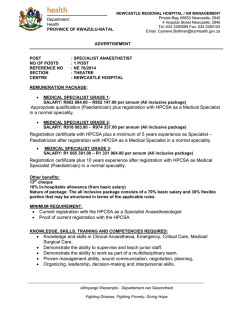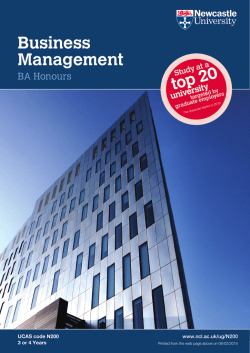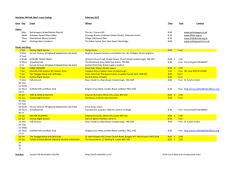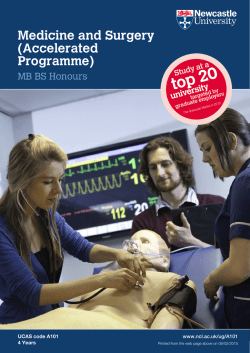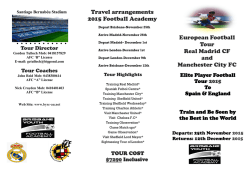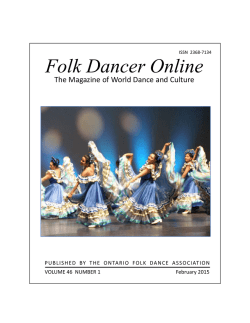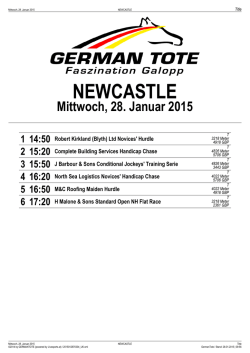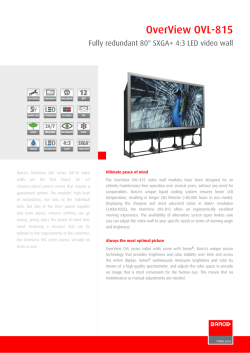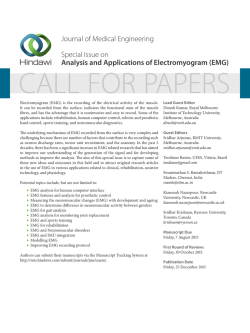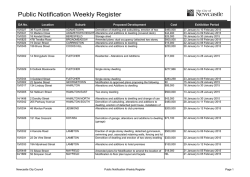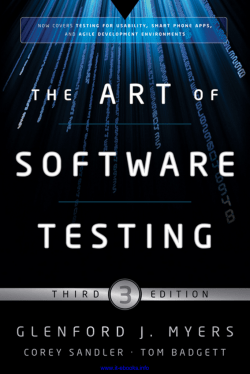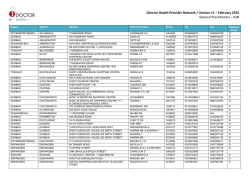
Folk and Traditional Music
Folk and Traditional Music BA Honours UCAS code W344 3 Years www.ncl.ac.uk/ug/W344 Printed from the web page above on 06/02/2015 Folk and Traditional Music BA Honours UCAS code W344 3 Years • a dissertation/project on an area of interest See the Modules section for detailed information on what you will study. The degree can be taken as a standalone degree but is designed for a close transition to the Master of Music (MMus) at Newcastle University, for students who wish to develop their performance, composition or scholarly skills to a higher level. Our BA Folk and Traditional Music degree is a unique programme that offers the opportunity to study the traditional music and song of England, Scotland, Wales and Ireland. Your learning community Performance is important throughout the degree and you will receive one-to-one lessons on your main instrument from internationally recognised musicians. • • • • • • • You will study the social and cultural context of traditional and folk music and how music helps to construct identity and culture. You can also choose to enhance your employability and develop career skills through modules in music enterprise and music teaching. We have a partnership with The Sage Gateshead, with some of the teaching taking place there, as well as all the final-year performance recitals. What you will study The first year lays the foundation for understanding folk and traditional music. There is a strong emphasis upon performance, including: • • • a range of modules on folk traditions regular one-to-one lessons on your main instrument weekly tutor-led workshops to develop your ensemble playing skills In second year, your choice includes a broad range of modules, such as: • • • ensemble playing academic approaches to the history and understanding of folk music approaches to traditional musics from around the world Students join our really vibrant performing community and take tuition with some of the best performers in the tradition, such as: Kathryn Tickell Catriona Macdonald Desi Wilkinson Simon McKerrell Shona Mooney Andy May Chris Newman Our students are part of a very strong performing community and also benefit from world-class musical scholarship drawn from many different cultures. Performance opportunities We have deep connections with the local Folk communities in the North-East and throughout the British Isles, including: • • • opportunities for our students at regular public concerts at The Sage Gateshead gigs at local folk clubs teaching and volunteering arrangements with local community groups In addition, there are excellent performance opportunities for all music students at Newcastle: • • free professional concert series every Thursday lunchtime during term-time, followed by a student performance where you have the chance to perform for, and listen to, your colleagues from all of our music degrees student-organised annual Summer Music Festival, showcasing our students' talent and giving you the chance to gain real-world experience of event management Find out more about performance opportunities at Newcastle University on the School website. Study abroad The second year also includes the popular option of taking a semester abroad (see below). Students wishing to add an international dimension to their degree can study abroad. In your final year, you take advanced modules linked to our research. You also complete a major specialist study, which may be: In the second semester there is the popular option of taking a semester abroad in one of our partner institutions such as Sibelius Academy or the Irish World Academy of Music and Dance in Limerick. • • an original composition a creative project or performance Take a virtual tour at www.ncl.ac.uk/tour 2 Alternatively, you may opt to take an entire year abroad in a partner institution, intercalated between the second and final years. This comes with a reduced fee, and it extends your studies over four years. We have links with a number of universities and conservatoires in Europe, North America, South America and Australia. • • • • • • • • • • • • • • • • • • • • • • • • • • • Berlin (Germany) – Humboldt-Universität Copenhagen (Denmark) – Royal Danish Academy of Music Dublin (Ireland) – Trinity College Göteborg (Sweden) – University of Gothenburg Graz (Austria) – Kunstuniversität Graz Helsinki (Finland) – Sibelius Academy Leuven (Belgium) – Katholieke Universiteit Limerick (Ireland) – Irish World Academy of Music and Dance, University of Limerick Malmö (Sweden) – Malmö Academy of Music Odense (Denmark) – Syddansk Musikkonservatorium Oslo (Norway) – Norwegian Academy of Music Parma (Italy) – Conservatorio di Musica Arrigo Boito Perugia (Italy) – Conservatorio di Musica di Perugia Rostock (Germany) – Hochschule für Musik und Theater Salamanca (Spain) – Conservatorio Superior de Música Salzburg (Austria) – Universität Salzburg Utrecht (Netherlands) – Hogeschool voor de Kunsten Utrecht Dalhousie (Nova Scotia) – Dalhousie University Montreal (Quebec) – McGill University Montreal (Quebec) – Université de Montréal Montreal (Quebec) – Concordia University Waterloo (Ontario) – University of Waterloo Burlington (Vermont) – University of Vermont Indianapolis (Indiana) – Indiana University Urbana-Champaign (Illinois) – University of Illinois Adelaide (Australia) – University of Adelaide Sydney (Australia) – University of New South Wales • • • Visit the School website to take a virtual tour of our music facilities Resources We have an excellent collection of instruments for you to use, including: • • • • • • Tuition We have over 100 professional instrumental and vocal tutors delivering free one-to-one tuition, including members of the internationally acclaimed Northern Sinfonia. orchestral percussion and drum kits guitar amplifiers and PA equipment several Steinway grand pianos and an organ harpsichord fortepiano a number of other early music instruments including sets of consort viols and baroque bows Our online archives include excellent resources for African-American music, classical music recordings, North East folk music, music from America’s past, and world musics. Find out more about our resources on the homepage of the International Centre for Music Studies. Teaching and assessment Study at the cutting edge • • • The International Centre for Music Studies has an international reputation for its research in two areas in particular: musicology creative practice Teaching methods • • Facilities and resources Study at Newcastle and you will join a supportive community in the International Centre for Music Studies. practice rooms and performance spaces a PC suite running specialist music software a large, recently refurbished student common room • Different forms of music need different approaches to study Some of our modules are based around lectures and seminars, often with set reading or listening assignments, and other modules take the form of smaller specialised study groups Performance modules are usually taught through a combination of individual one-to-one tuition, group workshops and specialist masterclasses Assessment methods • • • Facilities Examinations Written assignments Submission of dissertation or portfolio (of compositions, harmony, recordings, counterpoint or music analysis exercises) Live musical performance Our purpose-built Music Studios give you access to a wide range of state-of-the-art facilities, including: • • • Find out more • rehearsal spaces accessible 24 hours a day a large band practice room with full PA system and lighting rigs four acoustic instrumental tuition rooms with personal recording facilities Our base in the Armstrong Building offers a further range of facilities, including: • • • Teaching and assessment methods may vary from module to module. More information about each module can be found in the Modules section Visit our Teaching and Learning pages to read about the outstanding learning experience available to all students at Newcastle University music studios and recently refurbished teaching facilities Take a virtual tour at www.ncl.ac.uk/tour 3 Listen to our music You can also listen to other performances by students and staff at the International Centre for Music Studies at Newcastle University on the School website. Modules Our degrees are divided into Stages. Each Stage lasts for an academic year and you need to complete modules totalling 120 credits by the end of each Stage. Please be aware that programme modules do change and therefore may differ for your year of entry. Stages 1 Compulsory modules MUS1011 Understanding World Music MUS1012 Understanding Music History MUS1050 Music Skills (Folk and Traditional Music) MUS1090 Performance Studies (Folk and Traditional Music) 1 MUS1092 Ensemble 1 MUS1096 The Traditions of These Islands Stage 2 Historic Grey's Monument in the city centre. If you achieve a Stage 1 average of 60 per cent or more, it is possible to spend one semester on an Erasmus exchange, studying folk music at one of our partner institutions abroad. This usually takes place in semester 2. Optional modules You choose optional modules to a credit value of 120 from the following with at least one module from each list: List 1: Musicological Approaches Options MUS2054 Music and Cultural Theory MUS2060 Ethnomusicology MUS2065 Issues in Popular Music Culture MUS2088 Folk Music Studies: Resources and Research Materials List 2: Historical/Cultural Options MUS2003 Music in the Soviet Union (level 5) MUS2005 Global Popular Musics MUS2010 Musicals MUS2037 The Scope of Irish Traditional Music MUS2075 Baroque Music MUS2087 Iconic Folk MUS2103 Freedom/Funk/Fusion: Commercial Popular Music, Its Reinvention and Subversion By Emergent Social Forces MUS2111 Teaching Music in Schools: Issues and Practice MUS3112 Tradition, Learning and Community List 3: Applied Options MUS2006 Music, Sounds and the Environments in Which They Happen MUS2007 Early Music in Practice 1 MUS2008 Orchestration and Arranging MUS2012 World Music in Practice 1 MUS2020 Techniques of Harmony MUS2041 Contemporary Compositional Techniques Take a virtual tour at www.ncl.ac.uk/tour 4 Stage 2 Entry Requirements MUS2044 Practising Music Analysis MUS2050 Music Skills (Folk and Traditional Music) 2 MUS2090 Performance Studies (Folk and Traditional Music) 2 MUS2092 Ensemble 2 MUS2094 Additional Performance Studies (Folk and Traditional Music) 3 MUS2098 Noises, Sounds and Gestures: Experimental Improvisation and Electroacoustic Composition MUS3083 Conducting Studies All candidates are considered on an individual basis. If your qualifications are not listed here, please see our additional entry requirements web pages to find out which other qualifications are considered. Stage 3 Optional modules You choose one of the following optional modules: MUS3012 Major Specialist Study: Composition MUS3013 Major Specialist Study: Dissertation MUS3014 Major Specialist Study: Performance MUS3015 Major Specialist Study: Project You choose modules from the following, so that Stage 3 totals 120 credits, to include at least one module from each of the following lists: List 1: Historical/Cultural Options MUS3003 Music in the Soviet Union (Level 6) MUS3005 Global Popular Musics MUS3010 Musicals MUS3027 The Scope of Irish Traditional Music MUS3054 Music and Cultural Theory MUS3097 Iconic Folk MUS3103 Freedom/Funk/Fusion: Commercial Popular Music, Its Reinvention and Subversion By Emergent Social Forces MUS3111 Teaching Music in Schools: Socio-cultural Contexts and Approaches to Practice MUS3175 Baroque Music MUS3112 Tradition, Learning and Community List 2: Applied Options MUS3006 Music, Sounds and the Environments in Which They Happen MUS3007 Early Music in Practice 2 MUS3011 World Music in Practice 2 MUS3083 Conducting Studies MUS3095 Music Enterprise If you have achieved an end-of-year average for Stage 2 of 60% or higher, you may, instead of 20 credits of options drawn from List 1 and List 2, take 20 credits from the following list, provided the area of study is different to the Major Specialist Study, but only with approval of the Degree Programme Director MUS3016 Minor Specialist Study: Composition MUS3017 Minor Specialist Study: Dissertation MUS3018 Minor Specialist Study: Performance MUS3019 Minor Specialist Study: Project A Levels AAB-BBB ideally including Music. (Grade A in AS level Music may be considered, but will depend on the combination of subjects/qualifications being studied.) In usual circumstances offers will be made at the upper end of this range. However, we will consider giving offers at the lower end of the range to candidates who demonstrate themselves at audition to be performers of exceptional ability, but whose predicted or achieved academic grades are in the lower end of our offer range. Scottish Qualifications AAABB-AAAB at Higher Grade, including Music. Combination of Highers and Advanced Highers accepted. In usual circumstances offers will be made at the upper end of this range. However, we will consider giving offers at the lower end of the range to candidates who demonstrate themselves at audition to be performers of exceptional ability, but whose predicted or achieved academic grades are in the lower end of our offer range. International Baccalaureate A minimum of 33-35 points with Music at Higher Level. In usual circumstances offers will be made at the upper end of this range. However, we will consider giving offers at the lower end of the range to candidates who demonstrate themselves at audition to be performers of exceptional ability, but whose predicted or achieved academic grades are in the lower end of our offer range. Irish Leaving Certificate A1A1A1B1B-AAABB at Higher Level, to include Music. Access Qualifications 30 Level 3 Credits at Distinction and 15 at Merit. 15 Level 3 credits should be music related and preferably include Music Theory. All applicants will be asked to audition. Applicants should be practitioners in folk/traditional music. BTEC Level 3 Extended Diploma (formerly BTEC National Diploma) In a music-related subject, at overall DDD-DDM, plus evidence of ‘academic’ writing on music if not fulfilled by choice of units. Cambridge Pre-U D3,D3,M2-M2,M2,M2 in Principal Subjects including Music. In usual circumstances offers will be made at the upper end of this range. However, we will consider giving offers at the lower end of the range to candidates who demonstrate themselves at audition to be performers of exceptional ability, but whose predicted or achieved academic grades are in the lower end of our offer range. Take a virtual tour at www.ncl.ac.uk/tour 5 PARTNERS - A Levels Folk and Traditional Music careers BBC ideally including Music. AS level Music may be considered, but will depend on the combination of subjects/qualifications being studied. Our students have been extremely successful in gaining employment and now count amongst some of the leading performers in the UK and internationally. The PARTNERS Programme is Newcastle University’s supported entry route for students from identified schools and colleges. Find out more about the PARTNERS Programme. Many other students have gone on to other careers including arts administration, broadcasting, teaching, development, charitable work, scholarship, composition and production. PARTNERS - BTEC Level 3 Extended Diploma (formerly BTEC National Diploma) The employability of our graduates is really important to us and you will have access to lots of opportunities to boost your personal and professional development. For example: In a music-related subject, at overall MMM, plus evidence of 'academic' writing on music if not fulfilled by choice of units. The PARTNERS Programme is Newcastle University’s supported entry route for students from identified schools and colleges. Find out more about the PARTNERS Programme. • • Additional Information Performance ability is a primary criterion for selection and applicants will need to produce appropriate evidence of performance skills achieved. All applicants who we consider may be suitable for the course will be interviewed and auditioned. Applicants with musical experience but without standard qualifications are considered at a consultative interview prior to application. Students with advanced skills in performance of folk and traditional music may be exempted from some of the requirements for the qualifications listed. Any potential applicant is invited to contact the Degree Programme Director, Catriona Macdonald ([email protected]), to discuss the course and their suitability for it. English Language Requirements For this degree you will need a minimum score of IELTS 6.5 or equivalent. Visit our International Students web pages to find out more about our English language admission requirements. If you need to improve your English language skills before you enter this course, our partner, INTO Newcastle, offers a range of English language courses. These intensive and flexible courses are designed to improve your English ability for entry to this degree. Our student-led Summer Music Festival gives you real world experience of event management and the opportunity to showcase your classical music performance skills in front of a paying audience Our music enterprise option provides you with the knowledge you need to start a business in the cultural sector Our degrees teach you how to be confident, practical, hard working and dedicated. Our graduates go on to careers in a wide range of backgrounds, some becoming professional musicians or closely linked to the music sector, and others taking the skills they have developed and applying them in other careers, such as education, business, media, healthcare, marketing, finance or IT. Studying music at university is both intellectually and musically demanding, and it is one of the most varied and diverse degree subjects available. It requires you to engage in a broad range of practical and intellectual activities including performance, composition, improvisation, data analysis, research and critical intellectual enquiry. Music graduates therefore develop a wide range of key skills through both the academic and practical content of their degree, which opens a wide variety of opportunities. Teamwork and initiative are fostered through participation in music ensembles, and communication skills through performance, presentations and written work. Flexibility, self-discipline and good time management are all required to attain high technical standards and to balance the demands of study, practice and performance. This wide range of transferable skills means that music graduates can easily move into the career or training pathways that are open to graduates of any discipline; for example: • • • • • • • • See further Newcastle University Admissions Policies. Graduates who want to use their music degree in their work often progress to become self-employed musicians, performers, composers, teachers, academics, music therapists, studio managers or sound engineers. Find out more: English for University Study Pre-sessional English Undergraduate Admissions Policy • Newcastle University Undergraduate Admissions Policy 2015 Entry (PDF: 109 KB) management accountancy law events management journalism IT Other opportunities include specialist magazine journalism, music librarianship or music publishing. Take a virtual tour at www.ncl.ac.uk/tour 6 Many musicians enter careers that seek graduates of any discipline but offer the opportunity to use the specific skills developed in their studies. Possible occupations include arts administrator, community arts worker, museum curator or film/video production. Find out more about the career options for Music from Prospects: The UK's Official Careers Website. Careers and employability at Newcastle Newcastle University consistently has one of the best records for graduate employment in the UK. • • 93.7% of our 2013 UK/EU graduates progressed to employment or further study within six months of graduating. More than three quarters (77%) of our graduates who entered employment achieved a graduate-level position. We provide an extensive range of opportunities to all students through an initiative called ncl+ which enables you to develop personal, employability and enterprise skills and to give you the edge in the employment market after you graduate. Tuition Fees (International students) See more information on all aspects of student finance relating to Newcastle University. Scholarships and Financial Support (UK and EU students) You may be eligible for one of a range of Newcastle University Scholarships in addition to government grants and support. Newcastle University Scholarships Non-repayable grants Scholarships and Financial Support (International students) You may be eligible for an International Undergraduate Merit Scholarship (IUMS) or an International Family Discount (IFD). Our award-winning Careers Service is one of the largest and best in the country, and we have strong links with employers. Finance Tuition Fees (UK and EU students) 2015 entry: £9,000 per year See more information on all aspects of student finance relating to Newcastle University. Please note that the tuition fee amount you will pay may increase slightly year on year in line with inflation and subject to government regulations. The Armstrong Building, at the heart of campus. Tuition Fees (International students) 2015 entry: £16,265 per year 2014 entry: £15,490 per year You will be charged tuition fees for each year of your degree programme (unless you are on a shorter exchange programme). If you spend a year on placement or studying abroad as part of your degree you may pay a reduced fee for that year. Please note that the tuition fee amount you will pay may increase slightly year on year as a result of inflation. Take a virtual tour at www.ncl.ac.uk/tour 7
© Copyright 2026
